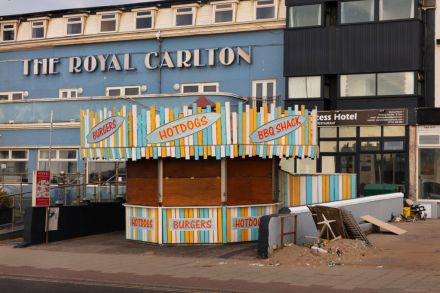‘They’ve killed Blackpool’
It’s mid-afternoon in the Royal Oak pub in Blackpool and Liv has arrived to sell a bag full of stuff she’s stolen from the supermarket. She’s got fabric conditioner, soap, Creme Eggs and a large bar of Dairy Milk. She pulls in a few pounds and then leaves to score some crack. ‘Everyone struggles,’ says a man watching her sell. Lots of people here don’t work. People earn money however they can. Neither Labour nor the Tories come here for their conferences any more. They prefer big cities with nicer hotels In Blackpool, you see the worst of Britain’s welfare crisis. More than a quarter of the city’s working-age residents





















